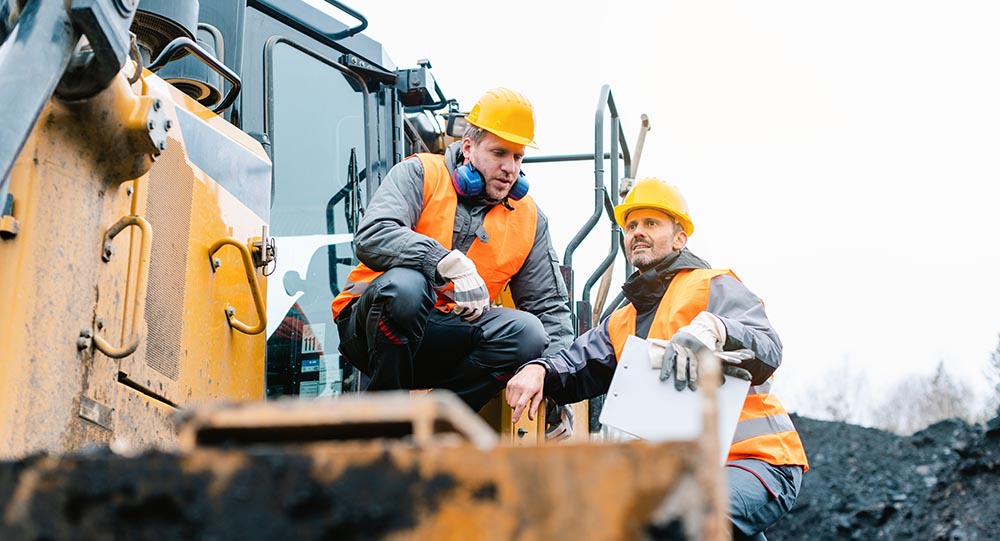A reclamation bond is a surety bond that is required by the Bureau of Land Management and other public owners for land disturbance and mining operations. A reclamation bond is usually a requirement if your business wants a permit to begin mining or a related operation at a certain project sight. The purpose of the reclamation bond is to offer a financial guarantee that the land is being disturbed for the mine’s operation (or a related activity) and will be returned to its former (original) condition or an acceptable condition that’s agreed on by the government agency and the operator.
Reclamation Bond Amounts
The amounts of reclamation bonds vary Usually, the amount you must pay is determined by the approximate cost of reclaiming the land after mining operations have ended. The actual reclamation costs can vary depending on the mining operation being conducted and the total impact to the land. Some of the considerations that come into play when determining land reclamation costs include (but aren’t limited to):
- Revegetation
- Topsoil replacement
- Building demolition and disposal
- Equipment removal and disposal
- Groundwater restoration
Reclamation bonds can be written for a single site or they can be written on a blanket basis for a number of mining sites. A few examples of operations where reclamation bonds are needed include rock quarries and salt mining. Of course, the most popular and prolific type of reclamation is coal mining.
The Purpose of Reclamation Bonds
Reclamation bonds are used to guarantee the land affected by mining or a similar permitted operation is returned to the pre-mining condition or to a condition that is agreed to be “acceptable.” If the mine operator does not perform the land reclamation, then the Surety (the company that provides the guarantee behind the bond) could be called to restore the land by paying the bond penalty or hiring another contractor. In either case, the mine operator will be responsible for the financial expense that is incurred by the surety bond company. Reclamation bonds are not insurance and Principals on the bond should understand this before putting a reclamation bond in place. Like most surety bonds, they rely on the principle of indemnity and ultimately. This means that the Principal on the surety bond is financially responsible for the reclamation of the land. If the surety bond company pays a valid bond claim, they will seek reimbursement from the Principal and any indemnitors.
Underwriting
Reclamation bonds have gotten more difficult to write over the years. This is in large part to the bankruptcies of some of America’s largest mining companies. As the world looks at alternatives to fossil fuels, mineral prices often decrease and put additional pressure on mining companies. Often, the reclamation of these lands can take years to even begin restoring the land. Once a surety bond company writes a reclamation bond, they cannot get off the liability unless they are replaced by another surety bond company. As such, they want to make sure that the Principal on the reclamation bond has the financial strength to complete the obligation.
What Is Needed to Apply for the Bond?
If you need to apply for a reclamation bond, expect to go through the full underwriting process. Because they are considered a high risk class of surety bonds, underwriters will expect to see the following:
- 3 years of company financial statements.CPA prepared statements are better.
- Personal Financial Statements on the owners.
- A completed Application.
- A completed Bank Reference Letter.
- Specific surety bond forms: the Obligee that requires the reclamation bond to be in place will usually require the bond be written on a bond form with specific wording. The surety bond underwriter will carefully review the bond form to make sure it is acceptable.
- Reclamation plan: A Principal seeking a reclamation bond needs a good reclamation plan showing how they will restore the land to it’s former condition.
Some Principals may even have to post collateral if they do not otherwise qualify.
What is the Cost of a Reclamation Bond?
This depends on the financial strength of the Principal. Strong Principals my pay less than 1% a year. Principals that are viewed as higher risk could pay as much as 5% per year. It is important to remember that reclamation bonds renew annually until the the land is restored. That means that the surety bond premium will also be due every year until the bond obligation is completed.
You can work with the professionals at MG Surety Bonds to answer all of your reclamation bond questions. By getting assistance with this process, you can feel confident that you will get the reclamation bond you need to begin the project. MG Surety Bonds has many surety bond companies that write reclamation bonds. We will work with you to find the best solution for your unique situation. We are surety bond experts and we want to be your surety bond broker for life. Contact us today!

